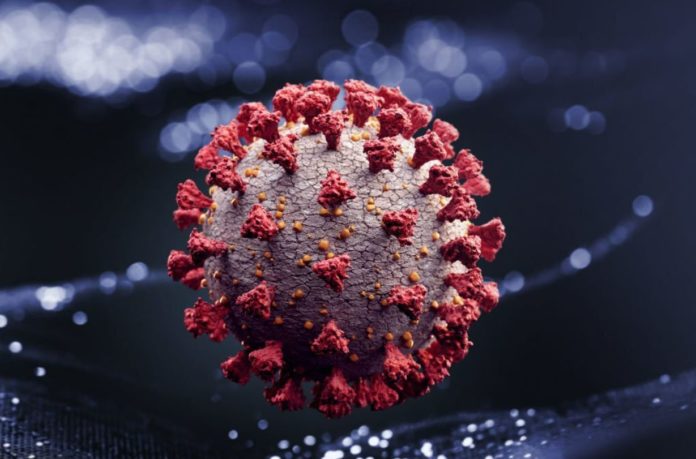A new study published today shows how SARS-CoV-2 spike protein gets heart cells to self-destruct and how it affects our heart.
COVID-19 patients who are hospitalized often have heart damage, which makes many people wonder how the virus affects the heart.
According to preliminary study to be presented at the American Cardiac Association’s Basic Cardiovascular Sciences Scientific Sessions 2022 between July 25 to 28, the spike protein from SARS-CoV-2 can cause heart muscle harm through inflammation.
The virus that causes COVID-19, SARS-CoV-2, has a spike protein on its surface. Angiotensin-converting enzyme 2 (ACE2) receptors on target cells are the point of attachment for spike proteins. As the first step in an infection, the spike protein helps the virus enter healthy cells. The virus can infect other organs in addition to the lungs, which can cause additional bodily harm, serious infection, and, in extreme cases, death.
While clinical studies have shown that infection with COVID-19 can cause heart damage, the mechanisms by which this occurs remain a mystery.
“What we suspect is that the spike protein has unknown pathological roles,” says Zhiqiang Lin, Ph.D., the study’s lead author.
“Our data show that the spike protein from SARS-CoV-2 causes heart muscle damage. That’s why,” according to the lead author, “it’s important to get vaccinated and prevent this disease.”
The first line of defense against pathogen invasion is host natural immunity, and heart muscle cells have their own inherent immunological apparatus. The body’s immune system must be activated to combat virus infection, but this can also compromise the function of cardiac muscle cells and even result in cell death and heart failure, according to Lin.
Researchers looked into whether the SARS-CoV-2 spike protein triggers the natural immune response in heart muscle cells. HCoV-NL63 is a coronavirus that attacks the respiratory system without hurting the heart. Its spike protein also uses ACE2 to help the virus get into the body. They investigated whether the NL63 spike protein and the SARS-CoV-2 spike protein may both lead to cardiac disease. Their results showed that the SARS-CoV-2 spike protein triggered the natural immune response in heart muscle cells and hurt the heart, but the NL63 spike protein did not.
“The fact that the SARS-CoV-2 spike protein is activating the natural immune response may explain the high virulence compared to the other coronaviruses,” Lin adds. “The TLR4 signaling is the major pathway that activates the body’s natural immune response, and the SARS-CoV-2 spike protein activates TLR4, not the regular flu spike protein.”
For the study of how the SARS-CoV-2 and NL63 spike proteins affect the heart, researchers cloned them into the AAV9 viral vector. Lab mice were given the AAV9 viral vector to turn on the spike protein in the heart muscle cells. They discovered that the SARS-CoV-2 spike protein, rather than the NL63 spike protein, was mediated by AAV9 and triggered heart dysfunction, hypertrophic remodeling (enlargement), and cardiac inflammation.
Researchers also found that the SARS-CoV-2 spike protein made heart muscle cells much bigger than heart muscle cells that didn’t have either spike protein.
“We found direct evidence that the SARS-CoV-2 spike protein is toxic to heart muscle cells,” says Lin.
Researchers also looked at a cardiac biopsy from a deceased patient who had COVID-19-related inflammation. In addition to heart muscle cells, the SARS-CoV-2 spike protein and TLR4 protein were found in different cell types. In contrast, a healthy human heart biopsied lacked these two proteins. That implies that TLR4 signaling will be activated once SARS-CoV-2 has infected the heart, according to Lin.
“Besides directly damaging the heart muscle cells, the spike protein itself is very inflammatory and may cause systemic inflammation that indirectly causes heart problems.”
ACE2 is a crucial enzyme that regulates blood pressure. The SARS-CoV-2 infection may affect ACE2 function, which raises blood pressure and damages the heart. SARS-CoV-2 may harm the heart through other, unidentified mechanisms.
“Our study,” adds the researcher, “provides two pieces of evidence that the SARS-CoV-2 spike protein does not need ACE2 to injure the heart.
First, they “found that the SARS-CoV-2 spike protein injured the heart of lab mice. Different from ACE2 in humans, ACE2 in mice does not interact with SARS-CoV-2 spike protein, therefore, SARS-CoV-2 spike protein did not injure the heart by directly disrupting ACE2 function.””
“Second, although both the SARS-CoV-2 and NL63 coronaviruses use ACE2 as a receptor to infect cells,” as study reveals, “only the SARS-CoV-2 spike protein interacted with TLR4 and inflamed the heart muscle cells. Therefore, our study presents a novel, ACE2-independent pathological role of the SARS-CoV-2 spike protein.”.
This study is the initial step in establishing whether the SARS-CoV-2 spike protein has any effect on the heart. The next step for the researchers is to look into how SARS-CoV-2 spike proteins result in cardiac inflammation. There are two possible mechanisms: the first is that the virus’ spike protein is expressed in infected heart muscle cells, directly triggering inflammation; the second is that the virus’ spike protein is shed into the bloodstream, where it causes heart damage from circulating SARS-CoV-2 spike proteins.
Image Credit: Getty
You were reading: This Is What Makes SARS-CoV-2 Spike Protein Different From Other Viruses – Shows New Study
